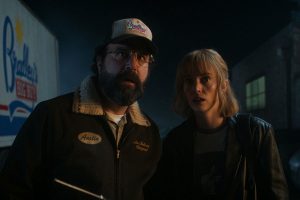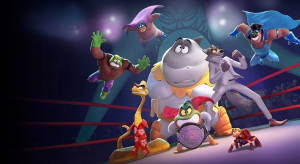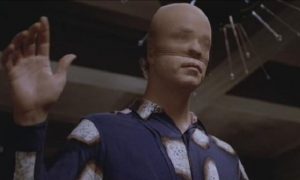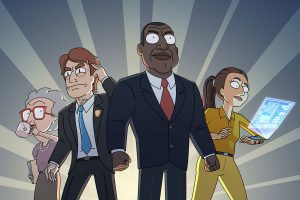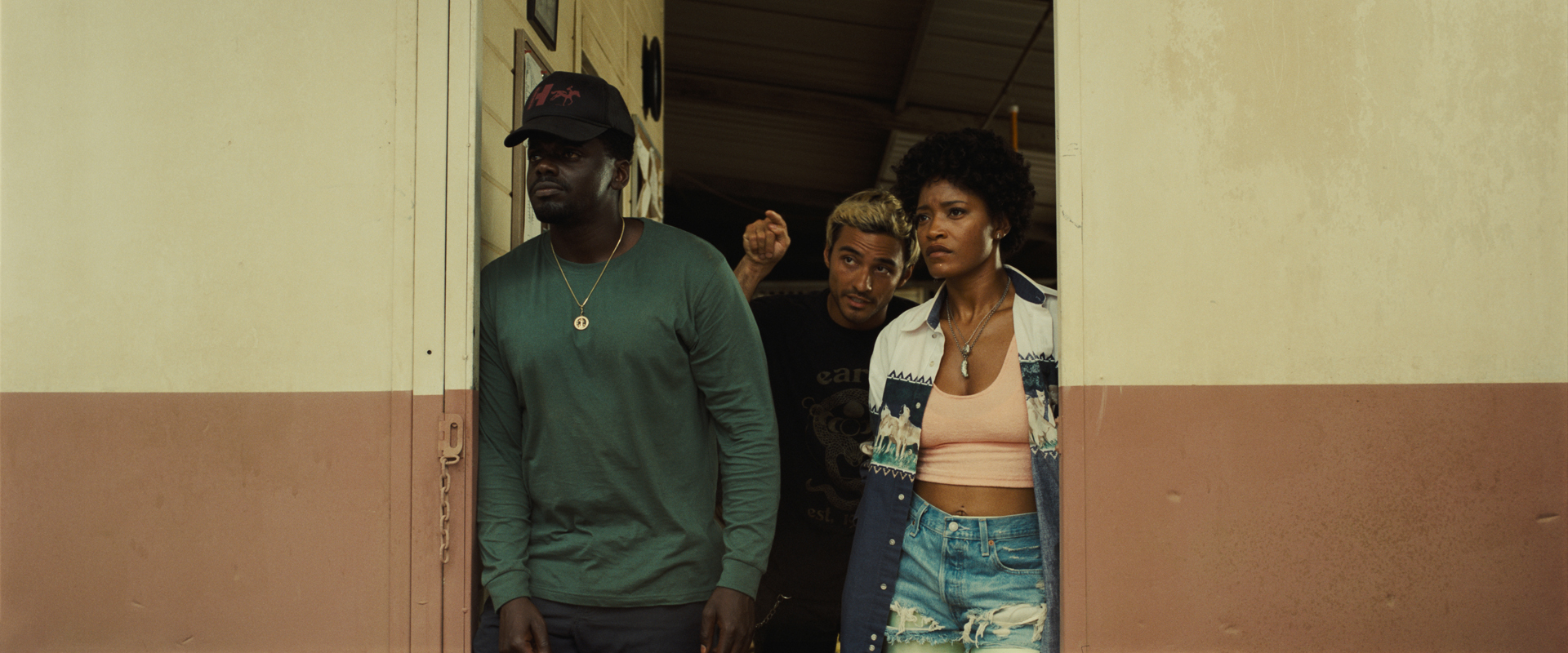
Nope (2022)
What’s a bad miracle?
Every time filmmaker Jordan Peele releases a new movie, film critics seem to lose their collective ‘shit’ over whatever he’s made, irrespective of whether it’s actually any good or not. His directorial debut, 2017’s Get Out, is honestly excellent, but I found his follow-up, 2019’s Us, to be very underwhelming, and was genuinely surprised when our writer submitted a five-star review to publish on our site. Peele returns to the directing chair with his hotly anticipated third feature, Nope, which is an alien invasion flick, a monster movie, a thriller, a comedy, a western, and a darn right mess. Influenced by Steven Spielberg’s Jaws (1975) and Close Encounters of the Third Kind (1977), along with M. Night Shyamalan’s Signs (2002), Peele throws everything and the kitchen sink at the screen here, hoping that some of it will stick.
 100vw, 616px” /></a><figcaption id=) Something’s up.
Something’s up.After OJ and Emerald’s father, Otis Sr. (Keith David), passes away from an unforeseen, potentially unearthly event, OJ and Emerald begin to suspect that there’s an intergalactic visitor hovering above the hills in their ranch, one that hides inside a cloud. In order to get proof of its existence (which they refer to as getting “the Oprah shot”), the siblings get help from a surveillance-tech guy named Angel (Brandon Perea) and eventually even persuade a renowned cinematographer, Antlers Holst (Michael Wincott), to take celluloid footage of whatever’s up in the sky.
 100vw, 616px” /></a><figcaption id=) ‘That cloud ain’t moved an inch.’
‘That cloud ain’t moved an inch.’As stated earlier, Nope isn’t a complete write-off as there’s another, more intriguing narrative running parallel with that of OJ and Emerald. Weaved into the mix is the story of Ricky “Jupe” Park (Steven Yeun), a former late nineties child star whose ‘brand’ was tarnished after a chimpanzee went wild on the set of his show, Gordy’s Home, the chimp brutally slaughtering and disfiguring all the actors bar him. From there, Jupe’s career went downhill. He now runs a tacky country-styled theme park in the desert he calls Jupiter’s Claim; Jupe’s story is a poignant, somewhat biting take on Hollywood showbiz — I just wish Peele had taken more time to focus on this, and maybe that way, we would have had a better film on our hands.
 100vw, 616px” /></a><figcaption id=) ‘Nothing to see here.’
‘Nothing to see here.’The performances, on the whole, are a bit hit and miss. Daniel Kaluuya, Get Out (2017), mumbles his way through his dialogue, and Keke Palmer, Hustlers (2019), well … she’s having fun; I just wish we were, too. Granted, Kaluuya and Palmer’s sibling connection rings true and makes certain moments of the movie work as well as they should. In more minor roles, Steven Yeun, Minari (2020), shines as Jupe, the one-time child star who’s forced to constantly relive a traumatic moment in his youth in order to make money despite what it’s costing him mentally. Brandon Perea is fun as tech-savvy Angel Torres, who decides to aid the Haywoods to fill the empty void left by his latest breakup, whilst Michael Wincott, Dead Man (1995), is genuinely captivating in his portrayal as curious cinematographer Antlers Holst.
 100vw, 616px” /></a><figcaption id=) ‘Giddy-up!!’
‘Giddy-up!!’2.5 / 5 – Alright
Reviewed by Dan Cachia (Mr. Movie)
Nope is released through Universal Pictures Australia

